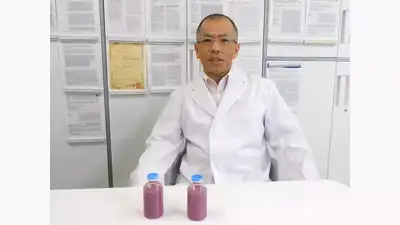ARTICLE AD BOX

Japanese scientists have developed a universal artificial blood substitute that can revolutionize global healthcare and address critical blood shortage challenges. Artificial blood is an invention, which serves as a substitute for real blood.
With the World Health Organisation (WHO) highlighting a global blood shortage, this innovation could play a very crucial role in saving lives during trauma, surgeries, emergencies, and other medical procedures, if proven successful. If the clinical trials prove successful, Japan could become the first-country to deploy artificial blood for real-world medical care by 2030.
Japan creates virus-free artificial blood that can be stored for years
Professor Hiromi Sakai at Nara Medical University has pioneered this approach, creating stable, virus-free artificial red blood cells that eliminate the need for blood type matching. According to The Japan Times, artificial red blood cells are produced by extracting hemoglobin, which carries oxygen, from donated blood and wrapping it with an artificial lipid membrane, according to the team. The artificial cells have a purplish color, unlike the common red color of blood, as they are made in a way that they do not oxidize until they are usedThe artificial blood technology centers on hemoglobin vesicles, small artificial blood cells that extract hemoglobin, the oxygen-carrying molecule, from expired donor blood and encase it in protective shells. Artificial blood offers several benefits over traditional blood donations. It eliminates the need for compatible testing, making it very useful in emergency situations, and can be stored at room temperature for up to two years, far exceeding the short shelf life of donated blood.
Revolutionizing global healthcare
This technology could improve healthcare by eliminating the compatibility issues and blood shortages especially in remote areas where blood storage and matching are challenging.
Unlike donated blood, these artificial cells have no blood type, eliminating the need for compatibility testing and making them valuable in emergencies. It represents a significant humanitarian breakthrough, promising to ensure blood availability anywhere, anytime, and transforming global healthcare systems.
Trial design
The trial will initially focus on testing safety before moving to broader performance and efficacy targets. It will administer 100 to 400 milliliters of artificial blood on volunteers. The research represents rapid progress of Japan’s artificial blood development program. Their program began with small-scale studies demonstrating that these tiny artificial cells could safely deliver oxygen as normal blood cells do.Also read | 3,500-year-old grave reveals: change in bronze age history around 1500 BC in Central Europe



.png)
.png)
.png)
















 2 days ago
3
2 days ago
3









 English (US) ·
English (US) ·